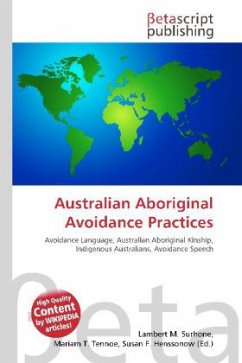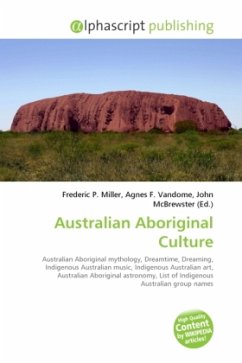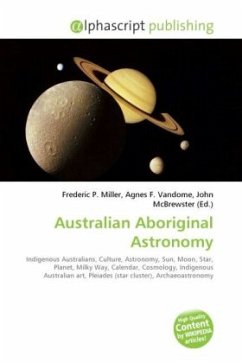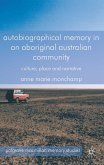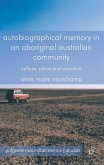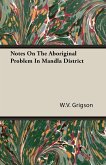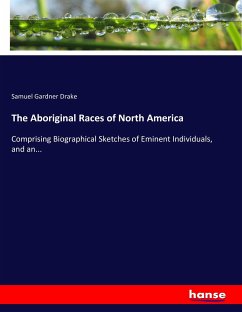Please note that the content of this book primarily consists of articles available from Wikipedia or other free sources online. Australian Aboriginal avoidance practices refers to those relationships in traditional Aboriginal society where certain people were required to avoid others in their family or clan. These customs are still active in many parts of Australia, to a greater or lesser extent. Avoidance relationships are a mark of respect. There are also strong protocols around avoiding, or averting, eye contact, as well as around speaking the name of the dead. Aboriginal custom throughout Australia bans a person from talking directly to their mother in law. The relationship is one of respect, but avoidance. A mother-in-law also eats apart from her son-in-law or daughter-in-law and their spouse. They will still communicate via the wife/husband, who remains the main conduit for communication in this relationship. Often there are language customs surrounding these relationships.This relationship extends to avoiding all women of the same skin group as the mother-in-law, and, for the mother-in-law, men of the same skin group as the son-in-law.

